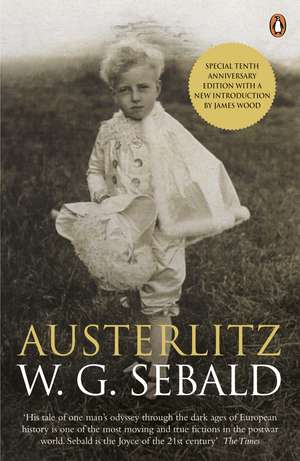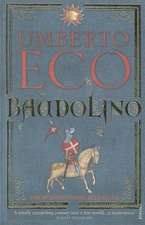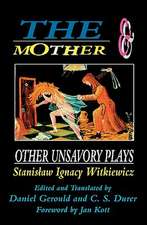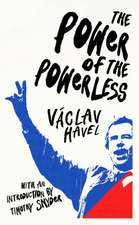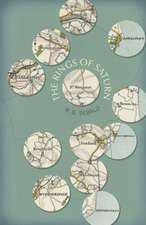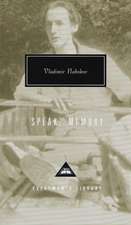Austerlitz
Autor W. G. Sebald Introducere de James Wood Traducere de Anthea Bellen Limba Engleză Paperback – 2 noi 2011
'The greatest writer of our time' Peter Carey
In 1939, five-year-old Jacques Austerlitz is sent to England on a Kindertransport and placed with foster parents. This childless couple promptly erase from the boy all knowledge of his identity and he grows up ignorant of his past. Later in life, after a career as an architectural historian, Austerlitz - having avoided all clues that might point to his origin - finds the past returning to haunt him and he is forced to explore what happened fifty years before.Austerlitzis W.G. Sebald's melancholic masterpiece.
'Mesmeric, haunting and heartbreakingly tragic. Simply no other writer is writing or thinking on the same level as Sebald' Eileen Battersby,Irish Times
'Greatness in literature is still possible' John Banville,Irish Times, Books of the Year
'A work of obvious genius'Literary Review
'A fusion of the mystical and the solid ... His art is a form of justice - there can be, I think, no higher aim'Evening Standard
'Spellbindingly accomplished; a work of art'The Times Literary Supplement
'I have never read a book that provides such a powerful account of the devastation wrought by the dispersal of the Jews from Prague and their treatment by the Nazis'Observer
'A great book by a great writer' Boyd Tonkin,Independent
W . G. Sebald was born in Wertach im Allgäu, Germany, in 1944 and died in December 2001. He studied German language and literature in Freiburg, Switzerland and Manchester. In 1996 he took up a position as an assistant lecturer at the University of Manchester and settled permanently in England in 1970. He was Professor of European Literature at the University of East Anglia and is the author ofThe Emigrants,The Rings of Saturn,Vertigo,Austerlitz,After Nature,On the Natural History of Destruction,Campo Santo,Unrecounted,A Place in the Country. His selected poetry is published in a volume calledAcross the Land and the Water.
| Toate formatele și edițiile | Preț | Express |
|---|---|---|
| Paperback (2) | 53.84 lei 23-34 zile | +20.25 lei 7-13 zile |
| Penguin Books – 6 iun 2018 | 53.84 lei 23-34 zile | +20.25 lei 7-13 zile |
| Penguin Books – 2 noi 2011 | 69.91 lei 23-34 zile | +26.12 lei 7-13 zile |
Preț: 69.91 lei
Preț vechi: 82.93 lei
-16% Nou
13.38€ • 13.100$ • 11.11£
Carte disponibilă
Livrare economică 14-25 martie
Livrare express 26 februarie-04 martie pentru 36.11 lei
Specificații
ISBN-10: 0241951801
Pagini: 448
Ilustrații: Mit Abb.
Dimensiuni: 129 x 198 x 27 mm
Greutate: 0.32 kg
Editura: Penguin Books
Colecția Penguin
Locul publicării:London, United Kingdom
Notă biografică
Recenzii
Anyone with a serious interest in fiction should read Sebald
His tale of one man's odyssey through the dark ages of European history is one of the most moving and true fictions on the postwar world. Sebald is the Joyce of the 21st century
Descriere
Austerlitz is W. G. Sebald's haunting novel of post-war Europe.
In 1939, five-year-old Jacques Austerlitz is sent to England on a Kindertransport and placed with foster parents. This childless couple promptly erase from the boy all knowledge of his identity and he grows up ignorant of his past. Later in life, after a career as an architectural historian, Austerlitz - having avoided all clues that might point to his origin - finds the past returning to haunt him and he is forced to explore what happened fifty years before. Austerlitz is W.G. Sebald's melancholic masterpiece.
'Mesmeric, haunting and heartbreakingly tragic. Simply no other writer is writing or thinking on the same level as Sebald' Eileen Battersby, Irish Times
'Greatness in literature is still possible' John Banville, Irish Times, Books of the Year
'A work of obvious genius' Literary Review
'A fusion of the mystical and the solid ... His art is a form of justice - there can be, I think, no higher aim' Evening Standard
'Spellbindingly accomplished; a work of art' The Times Literary Supplement
'I have never read a book that provides such a powerful account of the devastation wrought by the dispersal of the Jews from Prague and their treatment by the Nazis' Observer
'A great book by a great writer' Boyd Tonkin, Independent
W . G. Sebald was born in Wertach im Allgäu, Germany, in 1944 and died in December 2001. He studied German language and literature in Freiburg, Switzerland and Manchester. In 1996 he took up a position as an assistant lecturer at the University of Manchester and settled permanently in England in 1970. He was Professor of European Literature at the University of East Anglia and is the author of The Emigrants, The Rings of Saturn, Vertigo, Austerlitz, After Nature, On the Natural History of Destruction, Campo Santo, Unrecounted, A Place in the Country. His selected poetry is published in a volume called Across the Land and the Water.
